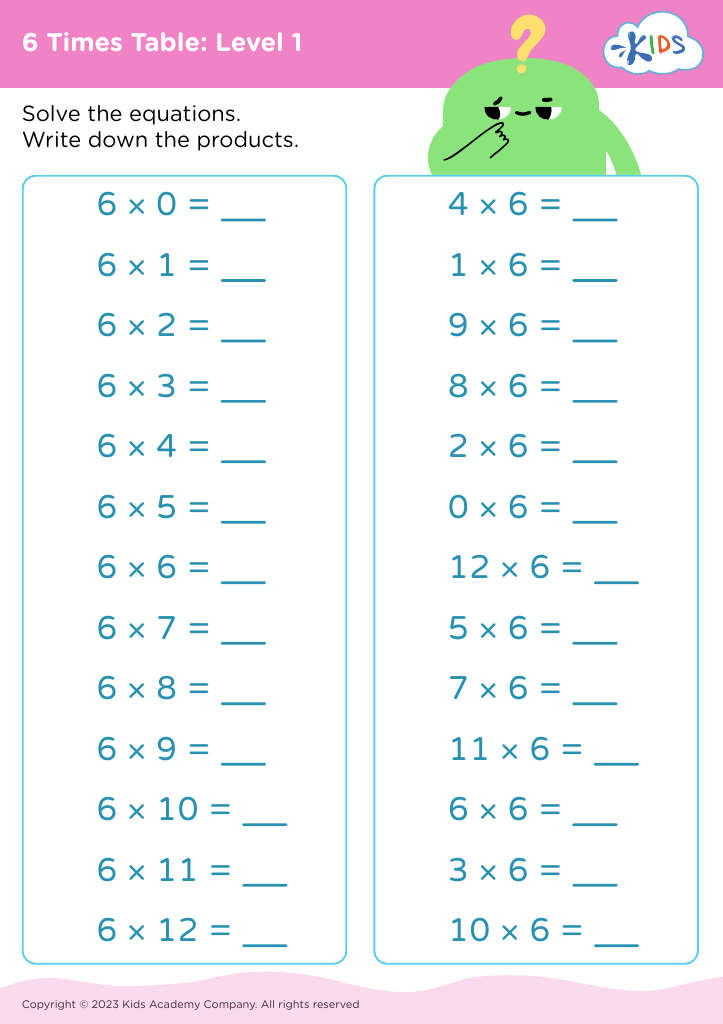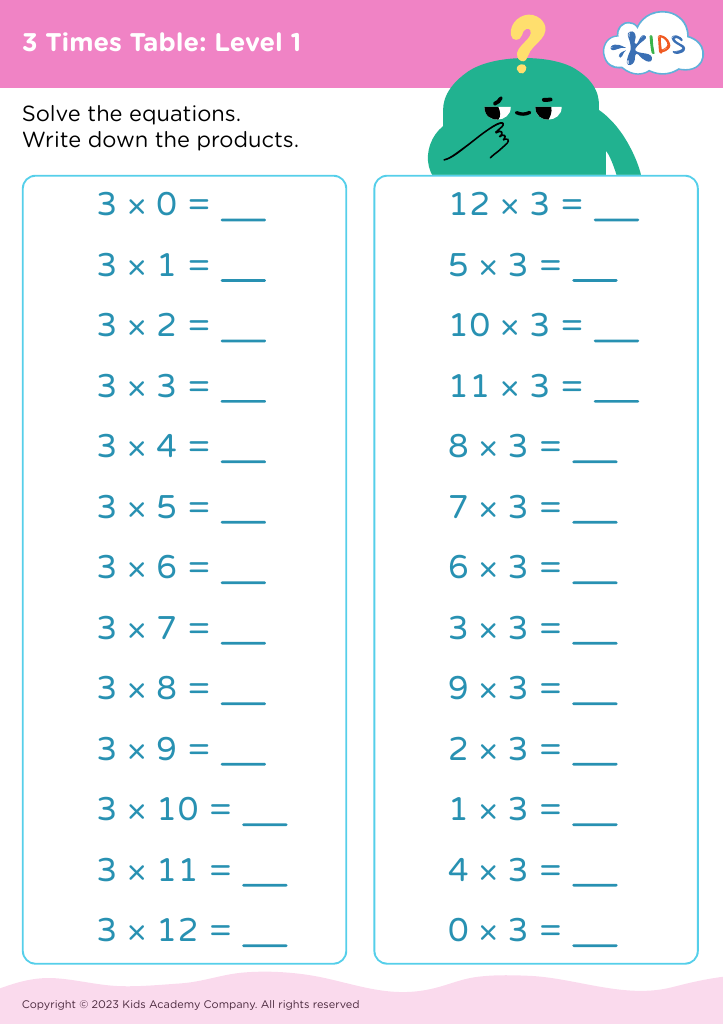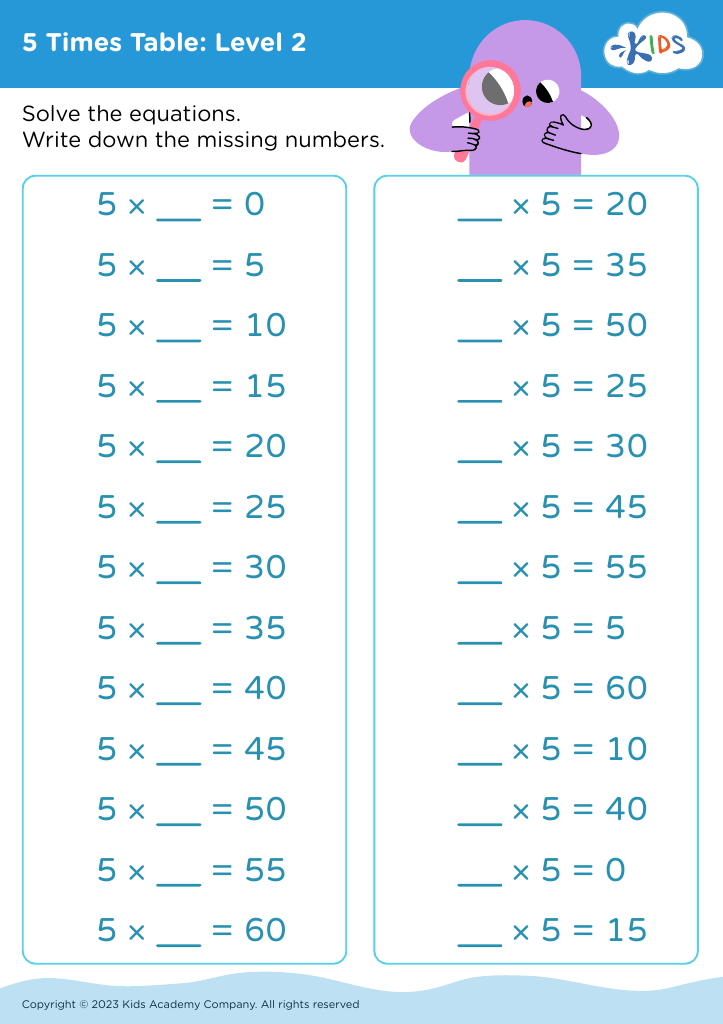Times table familiarity Times Tables Worksheets for Ages 7-8
3 filtered results
-
From - To
Boost your child's math skills with our "Times Table Familiarity" worksheets for ages 7-8! Designed to build confidence and proficiency, these engaging activities help young learners master multiplication facts in a fun, interactive way. Each worksheet offers varied exercises tailored to strengthen understanding and recall of times tables. Strengthen key learning skills while supporting classroom instruction. Ideal for both classroom and home use, our worksheets are perfect for making math practice enjoyable and effective. Help your child enhance their math confidence and excel in their studies with our expertly crafted times table worksheets!
Familiarity with times tables for children aged 7-8 is critical for several important reasons, both academically and in practical day-to-day life. At this stage in their education, children are at a foundational period where math skills are being bedrocked. Mastery of times tables ensures they have a strong grasp of multiplication, a core mathematical operation that enhances their ability to solve more complex problems involving division, fractions, and algebraic concepts later on.
For parents and teachers, fostering this familiarity offers a unique opportunity to develop not only academic proficiency but also confidence in handling mathematics. Children who are comfortable with times tables demonstrate better problem-solving abilities, logical thinking, and numerical fluency. Exams and standardized tests often include multiplication problems that, if quickly solved, can save time for other questions, potentially leading to better overall performance.
Beyond academics, solid times-table knowledge aids in various real-life scenarios, such as understanding money, time, and measurement. It also boosts cognitive development, as regular practice of math aids memory and concentration.
Implementing engaging games, songs, and daily practice at home and school encourages these young learners to view multiplication as an exciting challenge rather than a chore, setting them up for long-term success in mathematics and beyond.















